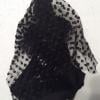Search the Community
Showing results for '"Weight gain"'.
Found 15,853 results
-


Weight gain, two weeks out from sugery
Daly444 posted a topic in Tell Your Weight Loss Surgery Story
Hi I'm two & 1/2 weeks out from surgery. At time of surgery I was 223. So far I've only lost 16 pounds, 207 lbs. I'm on my liquid diet & I gained "2 lbs" was 207lbs now 209lbs. I drink powerade zero, my stomach isn't tolerating water. I do get my soups from Olive Garden, pot belly, & panara bread. I'm shure there not the best choices but it's only two Tbls, twice a day & my stumach has always been finicky so if something actually sits well I eat that. Also my protein drink is called core power, which I love & only 100 cal/20g protein but there's 11g sugar. Could this be why I've gained weight or stalling weight loss? please let me know. -


Can anything be done after gastric bypass
The Greater Fool replied to deannaculp's topic in Revision Weight Loss Surgery Forums (NEW!)
My thoughts are with you and your family. On getting back to weight loss, don't think the below as a weight loss diet because weight loss diets end. Then one returns to the 'normal' diet which results in weight gain. This is just the old habits reasserting. Get back on your post-op plan. Return to the good habits you learned during the early post-op months. Whatever you do now, it won't be fast weight loss, but if you are consistent you will get where you want to be. Then you need to continue on plan consistently for the rest of your life. If you're inclined increase your activity or even :gasp: exercise. Exercise is not my thing, but I am active(ish). Good luck, Tek -
I was going to post the same thing!!! However, instead of your o1 lb, try 2 lbs. I know that I have no one to blame but me but I am just sick with myself. I did not work out last week because I was sick and then I did not eat like I normally eat nor did I drink all of my liquids like I was suppose to. I am also taking some meds so I don't know if has anything to do with the weight gain also. I am just going to push myself this week and to try and get back to where I was at. I am hoping that it is just a fluke and that I did not actually gain the 2 lbs.
-


First Name Kesha - Last Name Nervous
TheNiceVoice posted a topic in Tell Your Weight Loss Surgery Story
Greetings! This is the super short version. I'm 45. I'm married. I have one 20 year old daughter. I was diagnosed in 2011 of colon cancer and I've had to battle it twice. I did 2 six months bids of horrific chemotherapy. Some days, I honestly wanted to die. Since my initial dx, my health has gone downhill. Diabetics, High blood pressure, sleep apnea, blood clots, anxiety, depression and excessive weight gain. Not to mention chemobrain which has clouded my speech, my reading comprehension and writing skills. (so please excuse the typos in advance) My doctors believe that getting the sleeve can possibly jumpstart some things that would help pimp slap the other complications that I've have due to cancer. I'm approved and scheduled to get the sleeve this Monday....and I'm nervous. I'm scared of pain. I'm scared something going wrong. I'm just a big ball of anxiousness. So, welcome to my world. I'll be journalling on the way in hopes of inspiring someone else along the way.- 27 replies
-
- pre-op
- north carolina
-
(and 2 more)
Tagged with:
-

A good candidate
ssflbelle posted a blog entry in Welcome to my journey toward being able to walk again!
After waiting for 6 weeks I finally saw the Surgeon on July 22nd. He felt I would be a godd candidate for the Lapband. He wants me to take 2 Nutrition classes, get a Psychological Evaluation, a cardiac evaluation (I have no heart problems so not sure why) and bloodwork done. He also wants me to get with my PCP and find something other than Voltaren to take for the pain. Plus I need to get with the Pain management Dr to get off of Lyrica. It seems the Lyrica causes weight gain. I already had the Psychological Evaluation this week. Next Monday I can get the blood work done and Thursday will be the first Nutrition class. I will need to call for a Cardiac evaluation and schedule the 2nd nutrition class. When the Surgeon's office has all the evaluations I will be able to see him again, get a surgery date, final insurance approval and attend the preop class. When I asked how many more weeks he stated about 6 to 8 weeks. So we are looking at a possible Sept surgery date. In the mean time on July 17th I had three Thoracic Facet Joint Injections in my spine and have been finally able to do things for the first time in over 10 years. I still have some pain but not the knife stabbing, take away my breath kind of pain. I am walking about 6 to 9 minutes with 2 canes where as before I could barely walk 1 to 2 minutes. Instead of rolling around on the desk chair in the house I am now walking. I have been swimming and in the hot tub as I can finally lift my leg high enough to get up the stairs. I have taken day trips down to Fort Lauderdale and loving every minute of the drive. I am finally living and not just existing. I just hope and pray the pain does not come back as I will be even more depressed and upset if it does. Till next time have a great journey! If you noticed the date, this was written in 2008. It is now 2015. The pain came back in a matter of months and the weight went all the way up to 390. I am starting over again in 2015 to be approved for the sleeve. So anything after this date is my journey for the second try at WLS. -


A good candidate
ssflbelle commented on ssflbelle's blog entry in Welcome to my journey toward being able to walk again!
After waiting for 6 weeks I finally saw the Surgeon on July 22nd. He felt I would be a godd candidate for the Lapband. He wants me to take 2 Nutrition classes, get a Psychological Evaluation, a cardiac evaluation (I have no heart problems so not sure why) and bloodwork done. He also wants me to get with my PCP and find something other than Voltaren to take for the pain. Plus I need to get with the Pain management Dr to get off of Lyrica. It seems the Lyrica causes weight gain. I already had the Psychological Evaluation this week. Next Monday I can get the blood work done and Thursday will be the first Nutrition class. I will need to call for a Cardiac evaluation and schedule the 2nd nutrition class. When the Surgeon's office has all the evaluations I will be able to see him again, get a surgery date, final insurance approval and attend the preop class. When I asked how many more weeks he stated about 6 to 8 weeks. So we are looking at a possible Sept surgery date. In the mean time on July 17th I had three Thoracic Facet Joint Injections in my spine and have been finally able to do things for the first time in over 10 years. I still have some pain but not the knife stabbing, take away my breath kind of pain. I am walking about 6 to 9 minutes with 2 canes where as before I could barely walk 1 to 2 minutes. Instead of rolling around on the desk chair in the house I am now walking. I have been swimming and in the hot tub as I can finally lift my leg high enough to get up the stairs. I have taken day trips down to Fort Lauderdale and loving every minute of the drive. I am finally living and not just existing. I just hope and pray the pain does not come back as I will be even more depressed and upset if it does. Till next time have a great journey! -


I've changed about food, my family hasn't.
PatientEleventyBillion replied to BostonGary's topic in POST-Operation Weight Loss Surgery Q&A
My wife is adjusting her diet significantly because of my pre-op diet and, due to everything I learned over the course of that 3 month diet, my post-op diet plans, and seeing how successful it's been at dropping my weight and drastically improving other health issues associated. I've expressed my concern numerous times to her because she has PCOS, and I've told her I don't want her to experience what I went through with my weight gain. She wants us to have more children but I don't want to until she gets her weight down (she's around 205, like 80 pounds over her weight), to reduce the chances of situations like gestational diabetes, never mind the risks she runs of diabetes in general with her current weight (adding weight only making that situation potentially worse). Changing the diet helps doubly not only with her own health but with the health of any children we have (especially as a fetus). -


bad/sad what 2 medical people said to me!
ShariM735 replied to ProudGrammy's topic in Tell Your Weight Loss Surgery Story
A friend said that to me and I told her what my surgeon told me. You may experience some weight gain while trying to figure out your maintenance. Whether you do and how much is entirely in your control. I told her that I am in control and she shouldn't bother worrying about it. You go Kathy. We all know you are strong! Sent from my iPhone using VST -


Acid and decision for surgery
animallover1247 replied to oceangirlpc's topic in PRE-Operation Weight Loss Surgery Q&A
Amelie2016 - I have been researching this myself and today I found these questions and answers. Unfortunately, according to this, bariatric patients do not qualify for this procedure.I am only 3 weeks out and having the worse GERD of my entire life and it is not being controlled with medication. This is from Massachusetts General Hospital Frequently asked questions: LINX® system Q: What is the LINX® Reflux Management System? A: The LINX® Reflux Management System is an FDA-approved device implanted laparoscopically. The system relies upon a flexible bracelet of magnetic titanium beads that, when placed around the esophagus, supports a weak lower esophageal sphincter (LES), the muscle that opens and closes to allow food to enter and stay in the stomach by restoring the body’s natural barrier to reflux. Q: What are the risks associated with the LINX® procedure? A: All surgical procedures have risks, such as the risks associated with anesthesia, risk of bleeding and risk of infection. These risks are small. The most common side effects of the LINX® system are difficulty swallowing, post-operative pain and temporary bloating of the stomach. In the long run, many surgeons have concern that the device might erode into the esophagus and need to be removed. This has not been observed in the clinical trials to date. : How soon after the procedure can I eat? A: You should be able to eat soft foods with 48 hours of surgery. Q: How soon after the procedure can I resume normal physical activities? A: Routine daily activities can begin within a few days of surgery when pain medicine is no longer required. Activities such as sit-ups or weight lifting, which require use of the abdominal muscles, should be deferred for three to six weeks. Q: Will I have to take acid suppression medication after the procedure? A: Based on the clinical trials performed prior to FDA approval of the device, only 10% of LINX® patients required daily medication at one- and two-year follow-up. Q: Is there any risk the device will be too tight and cause food to get stuck? A: Yes; about 3% of patients that have had the device implanted had this problem and required removal of the device. Q: After the device is placed, is there any risk of infection? A: There is always a small risk of infection whenever a foreign object is placed in the body, whether it is LINX®, a pacemaker or an artificial joint. There is not enough data at this time to calculate the percent risk of infection, but the early data suggests it is quite small. Q: Will the device ever have to be removed? A: The intent is for this device to be permanent. But, since there is no 10-year follow-up data available yet, we cannot be sure. : Is there any chance the LINX® system won’t work as well if I gain a lot of weight after the procedure? A: The LINX® system works by creating a pressure of approximately 25 mm at the gastroesophageal junction (the place where the esophagus and stomach meet). Weight gain increases the pressure inside the abdomen, so it is possible that significant weight gain can create more pressure than the LINX® valve can counteract, leading to the return of reflux symptoms. Q: Will my insurance company pay for LINX®? A: Nearly all insurance companies pay for antireflux surgery. Since the LINX® procedure is a new form of antireflux surgery, insurers are learning about the procedure. We are working closely with them to obtain pre-authorization for these procedures on a case-by-case basis. Q: If my insurance won't pay for it, how much would the procedure cost? A: Please contact the Mass General Billing Office at 617-726-4098 or at cs.mgh@partners.org for more information. Q: I have heard that because I had bariatric surgery, I am not a candidate for LINX®. Is it possible this will change and I could be eligible for the system in the future? A: The LINX® system is not approved for use in patients who have had prior bariatric or esophageal surgery. Q: If the LINX® device needs to be removed or isn't effective, can I have a standard Nissen fundoplication (NF)? A: Patients often mention that an NF was suggested to them in the past, or they were considering it when they found out about LINX®. As the screening tests are the same for both procedures, NF may still be considered, providing testing doesn't exclude you. If you cannot or choose not to have LINX®, NF may still be an option. Thank you for this. This is not good news, is it. =( I guess now I need to find out why, good to know because I will take this info to my next appt. too. Yes, that;s what I hear as well but preop and with the surgery I've lost 45 lbs and my GERD has not improved at all. Of course I still have a lot of weight to lose. I don't think I have ever been so miserable with pain. If I didn't know it was acid, I would swear I was having a heart attack. No its not good news so if you find out anything different let me know. -


Acid and decision for surgery
animallover1247 replied to oceangirlpc's topic in PRE-Operation Weight Loss Surgery Q&A
Amelie2016 - I have been researching this myself and today I found these questions and answers. Unfortunately, according to this, bariatric patients do not qualify for this procedure.I am only 3 weeks out and having the worse GERD of my entire life and it is not being controlled with medication. This is from Massachusetts General Hospital Frequently asked questions: LINX® system Q: What is the LINX® Reflux Management System? A: The LINX® Reflux Management System is an FDA-approved device implanted laparoscopically. The system relies upon a flexible bracelet of magnetic titanium beads that, when placed around the esophagus, supports a weak lower esophageal sphincter (LES), the muscle that opens and closes to allow food to enter and stay in the stomach by restoring the body’s natural barrier to reflux. Q: What are the risks associated with the LINX® procedure? A: All surgical procedures have risks, such as the risks associated with anesthesia, risk of bleeding and risk of infection. These risks are small. The most common side effects of the LINX® system are difficulty swallowing, post-operative pain and temporary bloating of the stomach. In the long run, many surgeons have concern that the device might erode into the esophagus and need to be removed. This has not been observed in the clinical trials to date. : How soon after the procedure can I eat? A: You should be able to eat soft foods with 48 hours of surgery. Q: How soon after the procedure can I resume normal physical activities? A: Routine daily activities can begin within a few days of surgery when pain medicine is no longer required. Activities such as sit-ups or weight lifting, which require use of the abdominal muscles, should be deferred for three to six weeks. Q: Will I have to take acid suppression medication after the procedure? A: Based on the clinical trials performed prior to FDA approval of the device, only 10% of LINX® patients required daily medication at one- and two-year follow-up. Q: Is there any risk the device will be too tight and cause food to get stuck? A: Yes; about 3% of patients that have had the device implanted had this problem and required removal of the device. Q: After the device is placed, is there any risk of infection? A: There is always a small risk of infection whenever a foreign object is placed in the body, whether it is LINX®, a pacemaker or an artificial joint. There is not enough data at this time to calculate the percent risk of infection, but the early data suggests it is quite small. Q: Will the device ever have to be removed? A: The intent is for this device to be permanent. But, since there is no 10-year follow-up data available yet, we cannot be sure. : Is there any chance the LINX® system won’t work as well if I gain a lot of weight after the procedure? A: The LINX® system works by creating a pressure of approximately 25 mm at the gastroesophageal junction (the place where the esophagus and stomach meet). Weight gain increases the pressure inside the abdomen, so it is possible that significant weight gain can create more pressure than the LINX® valve can counteract, leading to the return of reflux symptoms. Q: Will my insurance company pay for LINX®? A: Nearly all insurance companies pay for antireflux surgery. Since the LINX® procedure is a new form of antireflux surgery, insurers are learning about the procedure. We are working closely with them to obtain pre-authorization for these procedures on a case-by-case basis. Q: If my insurance won't pay for it, how much would the procedure cost? A: Please contact the Mass General Billing Office at 617-726-4098 or at cs.mgh@partners.org for more information. Q: I have heard that because I had bariatric surgery, I am not a candidate for LINX®. Is it possible this will change and I could be eligible for the system in the future? A: The LINX® system is not approved for use in patients who have had prior bariatric or esophageal surgery. Q: If the LINX® device needs to be removed or isn't effective, can I have a standard Nissen fundoplication (NF)? A: Patients often mention that an NF was suggested to them in the past, or they were considering it when they found out about LINX®. As the screening tests are the same for both procedures, NF may still be considered, providing testing doesn't exclude you. If you cannot or choose not to have LINX®, NF may still be an option. -
Good luck with that. Have you tried dough-nut style cushions or pregnancy cushions, they protect your coccyx. I used them at seminars if they were long and chairs were uncomfortable, and this was in my pre-weight gain days. They worked for me.
-


Acid and decision for surgery
Amelie2016 replied to oceangirlpc's topic in PRE-Operation Weight Loss Surgery Q&A
Thank you !! Amelie2016 - I have been researching this myself and today I found these questions and answers. Unfortunately, according to this, bariatric patients do not qualify for this procedure.I am only 3 weeks out and having the worse GERD of my entire life and it is not being controlled with medication. This is from Massachusetts General Hospital Frequently asked questions: LINX® system Q: What is the LINX® Reflux Management System? A: The LINX® Reflux Management System is an FDA-approved device implanted laparoscopically. The system relies upon a flexible bracelet of magnetic titanium beads that, when placed around the esophagus, supports a weak lower esophageal sphincter (LES), the muscle that opens and closes to allow food to enter and stay in the stomach by restoring the body’s natural barrier to reflux. Q: What are the risks associated with the LINX® procedure? A: All surgical procedures have risks, such as the risks associated with anesthesia, risk of bleeding and risk of infection. These risks are small. The most common side effects of the LINX® system are difficulty swallowing, post-operative pain and temporary bloating of the stomach. In the long run, many surgeons have concern that the device might erode into the esophagus and need to be removed. This has not been observed in the clinical trials to date. : How soon after the procedure can I eat? A: You should be able to eat soft foods with 48 hours of surgery. Q: How soon after the procedure can I resume normal physical activities? A: Routine daily activities can begin within a few days of surgery when pain medicine is no longer required. Activities such as sit-ups or weight lifting, which require use of the abdominal muscles, should be deferred for three to six weeks. Q: Will I have to take acid suppression medication after the procedure? A: Based on the clinical trials performed prior to FDA approval of the device, only 10% of LINX® patients required daily medication at one- and two-year follow-up. Q: Is there any risk the device will be too tight and cause food to get stuck? A: Yes; about 3% of patients that have had the device implanted had this problem and required removal of the device. Q: After the device is placed, is there any risk of infection? A: There is always a small risk of infection whenever a foreign object is placed in the body, whether it is LINX®, a pacemaker or an artificial joint. There is not enough data at this time to calculate the percent risk of infection, but the early data suggests it is quite small. Q: Will the device ever have to be removed? A: The intent is for this device to be permanent. But, since there is no 10-year follow-up data available yet, we cannot be sure. : Is there any chance the LINX® system won’t work as well if I gain a lot of weight after the procedure? A: The LINX® system works by creating a pressure of approximately 25 mm at the gastroesophageal junction (the place where the esophagus and stomach meet). Weight gain increases the pressure inside the abdomen, so it is possible that significant weight gain can create more pressure than the LINX® valve can counteract, leading to the return of reflux symptoms. Q: Will my insurance company pay for LINX®? A: Nearly all insurance companies pay for antireflux surgery. Since the LINX® procedure is a new form of antireflux surgery, insurers are learning about the procedure. We are working closely with them to obtain pre-authorization for these procedures on a case-by-case basis. Q: If my insurance won't pay for it, how much would the procedure cost? A: Please contact the Mass General Billing Office at 617-726-4098 or at cs.mgh@partners.org for more information. Q: I have heard that because I had bariatric surgery, I am not a candidate for LINX®. Is it possible this will change and I could be eligible for the system in the future? A: The LINX® system is not approved for use in patients who have had prior bariatric or esophageal surgery. Q: If the LINX® device needs to be removed or isn't effective, can I have a standard Nissen fundoplication (NF)? A: Patients often mention that an NF was suggested to them in the past, or they were considering it when they found out about LINX®. As the screening tests are the same for both procedures, NF may still be considered, providing testing doesn't exclude you. If you cannot or choose not to have LINX®, NF may still be an option. Thank you for this. This is not good news, is it. =( I guess now I need to find out why, good to know because I will take this info to my next appt. too. So sorry you're having GERD right now! I do hope it resolves itself. I keep reading that as we lose weight, the loss of pressure helps. I do hope it goes away for you! =( -
If you go WAY over your Protein needs, the excess protein can be stored as fat. Here's what livestrong.com has to say about it: In the Unites States, protein intake generally exceeds requirement. After protein completes its functions, the extra protein becomes a source of energy. This is fine as long as there is energy balance and the intake of energy does not exceed energy expenditure. When carbohydrate and fat intakes meet energy requirement, then the energy from protein is not necessary. Since protein cannot be stored as such, the body converts the extra protein into fat deposits. In this indirect manner, extra protein contributes to weight gain. Read more: http://www.livestron.../#ixzz2X4g3L6az It sounds like what they're saying is that we need to balance protein intake with exercise, to make sure any excess isn't stored in our bodies as fat. Also, our bodies can't absorb more than about 15-20 grams of protein per hour--so doubling up on protein might not give us any real benefit. More about protein absorption: http://www.livestrong.com/article/480054-how-much-protein-can-we-absorb-per-meal/
-


Rescheduled 3 times! Pre-Op started yesterday - want to run away!
cmcrider replied to cmcrider's topic in Tell Your Weight Loss Surgery Story
To all who have commented.... i thank you for your input... but, i'm finding that many of those who have had the surgery seem to be a bit harsh and may have lost their understanding - or are just too different from me to relate to. TwinsMama - I have researched this EXTENSIVELY for three entire years. I would be a moron not to have done that. In fact, my knowledge base on both the physical and mental aspects of the procedure and lifestyle required are so extensive that two doctors I've spoke to thought I had a medical background. i've been on chat boards, blogs, seen nutritionists, doctors, and know I'm not "alone" - i was just hoping to find people who felt the same way i do, and have/had the same concerns. It is the "process" i find to be bu*****. it is the moneymaking i find to be bul****. THAT is what i have a problem with - along with the new statistics that show over 50% of people gain the weight back throughout a period of 5 years - and that those numbers are likely much higher considering the people that don't report back to their doctors and aren't included in the statistics. My own doctor's staff member has had staggering weight gain - along with multiple other people I know. Nobody is immune to the possibility that this weight will come back. Yes, I considered making changes prior to this. I tried making changes - and my inability to do so is what makes me a true candidate for the surgery. i have an eating disorder. i need help. it takes a desperate person to go get more than half of their stomach cut out and give up so much for the remainder of their lives. The fact that i'm fully aware nothing can prepare me is what makes me exceptionally nervous - exceptionally cautious - and exceptionally uncertain. If I could have gone through the prep easily I wouldn't be having this surgery at all. I'd be continuing the prep as a way to lose weight rather than having someone make me physically unable to overeat. No one can be 100% certain as to what their actions will be until they are in a situation. Accepting that as a human being leaves me room to be comfortable with my uncertainty. I'd be an a** to go into this saying "Oh Boy - this is going to be great! I'm going to be skinny and life will be grand." In short, everyone is entitled to their thoughts. I woke up this morning feeling very positive about the situation and after reading a few comments on this site i'm a little floored. Now I understand why a few people pm'ed me instead of posting publicly. There are a handful out there with the same concerns I have - they just didn't make them public. Good luck to all of you. May your journey be smooth and your goal come to you. -
In pre-surgery counseling, I was told there would be no follow-up, BUT, if I should feel depressed, should I reach a plateau, need someone to talk to, or even ask for medication, I CAN and with open arms, but it is up to me to ASK, and to ASK was stressed about a half-a-dozen times. I wanted my surgery very badly, and I was determined not to appear depressed in any way during my counseling session. I had to pass to get to the next level. When it comes to depression, thin people are just as depressed as large or obese people. Everyone has issues and there's no magic to solve any of them. But when there's severe weight loss, and then weight gain after all that, I just can't imagine not being being even more determined to keep it off. But it does depend what kind of self-medication is used by post bypass patience. BUT correctly said, food is our (my) "drug of choice". It made me feel good, it made me feel bad. We're the opposite of those who choose to starve themselves as their drug. Those who starve themselves get the "awe" media attention and "what a pity", while large people get "they just don't have any self-control" snipers. AND not all large people are large because of over-eating. My metabolism went wonky 20 years ago, and Synthroid for hypothyroidism helped to slow my weight gain, but it could not put the brakes on weight gain altogether. I'm up to 250mcg /day dose, (doctor's say it's high), with a metabolism that's way whacked out. If it remains the same once I achieve my weight goal, I will be the perfect candidate to put all my weight back on again. So I not only have to be goal oriented being banded, I have a lifestyle to change and maintain forever and I hope my forever is at least 40 more years.
-


How long before the "honeymoon" is over?
Happy Camper replied to highfunctioningfatman's topic in Weight Loss Surgery Success Stories
Hi all, I am 5 years post op. I stopped paying attention after I got thin at about 10 months. So the "Honeymoon". Seems to fall off about then. ,your pyloric valve has relaxed and you are feeling good/looking good! You have to keep going, do not think it will keep falling off (losing your hair as well). Keep exercising, keep drinking your Water and ALWAYS eat your Protein first. I can eat a whole lot more now, I get hungry, made excuses and have gained 50 lbs back in about 3 years. I am back on this forum looking for inspiration to get back using my tool, and pray I can somehow regain more restriction. I never have gone back to drinking while I eat, I have never missed my Vitamins. I did end up having 2 grand mal seizures, not certain but I am on medication which was when my weight gain began. I don't want any more excuses - I want my weight loss back. If anyone would like to ask,any real life questions about the journey, feel free To ask just about anything :-) I am happy to share what I know. -


Links to 5:2, research and related topics here
Georgia replied to feedyoureye's topic in Gastric Sleeve Surgery Forums
FROM THE ARTICLE Re: Why dieting results in weight gain & will 5:2 be differe by carorees » 06 Feb 2013, 19:34 Hi Dominic I think the issue is not with the basic equation, which is of course correct, but that for most people who have lost weight the biological drive to go into positive energy balance is hard to overcome because our appetites are increased while the energy metabolised is lowered. Facing a lifetime of dietary restriction, most people fall off the wagon either intentionally (because the diet is too restrictive) or accidentally (because they did not realize that their energy use is lower than it should be for their height and weight). What happens as a result is that they not only regain the weight lost but a bit more because of the upward drift of the set point. Looking at the population of dieters it is not the weight loss that is the issue, it is maintaining the healthy weight afterwards for most people. The fact that the 5:2 lifestyle is sustainable indefinitely and the potential for it to have a different effect metabolically than traditional methods of calorie restriction gives us hope that it really will turn out to be the 'one'! I LIKE THE LAST PART! -
Hey all!! I had to express my thanks to all in the forum who have been so motivational and inspiring. I hope that I can pay it forward to the newcomers as well as the regulars!!!! Well here I go.... (rather lengthy) I was 130-140 my whole life until I turned 25 years old when my thyroid went byzeric. I got down to 120lbs and my doctor had to "kill" it. In two months time I went from 120 to 190... Oh yes stretch marks and I haven't birthed not one child yet. Since I was 25 years old I have struggled with my weight and was diagnosed with PCOS as well as Type 2 Diabetes..... I gained an additional 27 lbs last year in June when my ex passed away tragically. Yes we were separated, not together, but we always kept our love evident. We always said life was leading us back to one another. Needless to say his death was a tragedy and had a major affect on me. Thankfully I have great family and friends that helped me to mourn and recover. I still felt like "Dang I'm 33 years old, with no children, and no prospects in site". I tell you God works in mysterious ways. 6 months ago, by chance, maybe fate, I had the chance to reconnect with a guy i really cared for when I was 23 years old. Who would have thought 10 years later we would have found eachother, not to mention being 80 lbs heavier. He never judged me for the weight gain and always told me I was beautiful no matter what size. In May i decided to go ahead and get my health right, and started the lap band process. He couldn't quite understand why I wanted to get WLS because he felt I wasn't that overweight, but my health told me different. Since losing 31 lbs, he is now my biggest cheerleader. I've even got him eating healthier!! So basically in saying all of this is... Congrats to everyone who has started their journey. This is a start to your new life and new lifestyle. Don't ever think that it is a quick fix, but a tool to help you along and motivate you to eat right and do better. Also, that you never know who your admirers are, but I am thankful I met someone who could love me whether fat or thin, and accept me with the good and the bad!! Have a great night!!
-
We do not decide what surgical procedures are considered elective or not, that is decided by people far above my pay grade. My surgery date was moved twice because it was considered elective. On the day of my surgery my time was moved by two hours in order for a more urgent surgery to go first. Each surgeon and each insurance company has their own process to qualify for these procedures. Not every surgeon requires you to lose weight preoperatively, not every insurance company requires six months medical weight loss. People elect to have surgery in Mexico when insurance won’t cover it. Until bariatric surgery is not considered an elective surgery and they start performing emergency gastric bypasses and sleeves on the obese all of us will have to follow the program guidelines preoperatively. If there are medical reasons that program requirements cannot reasonably be met as far as weight gain due to actual medical diagnoses it would seem that proper documentation from a primary care physician would suffice if submitted to the insurance company.
-


Are there any sleevers out there that have gained a lot back?
sleeve 4 me posted a topic in POST-Operation Weight Loss Surgery Q&A
OK lately I've been hearing that A LOT of wls people have gained or are gaining a lot of weight back after wls. I actually just met a lady in my panni class a few weeks ago that gained 50 lbs. back in a 2 year period...hearing this is TOTALLY freaking me out. I go up and down between 1-3 lbs. and that's the MOST I've gone up. Are there any sleevers out there that have gained 10, 15, 20, and up??? If so, how long did it take for you to gain???? Also, by any chance do you drink with your meals??? I use to be really strict about waiting the 30 minutes to drink after meals, but I'm finding that it's easier to drink sooner than the 30 minutes, and I'm wondering if that will contribute to weight gain. Right now I'm really trying to maintain (difficult stage to be in) and not counting or watching every bite I eat, because I really don't want to lose any more (for the MOST part I do make healthy choices), but on the other hand I'm freaking out about gaining my weight back after hearing about all these other folks. Any feedback would be appreciated! -
You'll have some water weight gain from the carbs, but it's not the end of the world. Just stick to protein and watch those carbs going forward.
-
You may gain weight. However, it probably won't be fat that you gain. Rather, you'll likely gain water weight by reintroducing carbs without engaging in moderate intensity exercise on a routine basis. Starchy carbs (e.g. corn, potatoes, rice, breads, yams, etc.) may cause bloating in susceptible people due to several mechanisms. High-carb food causes the body to store three times as much water compared to protein. This increased water storage is in the form of muscle glycogen stores. To summarize, you may see a bump upward on the scale from water weight gain if you resume eating carbs. However, this can be minimized by working out. For instance, I eat as many carbs as I want, but I keep my activity levels high because I dislike restricting macros from my food intake.
-


Carbonation after WLS?
savannahlee025 replied to ebroms17's topic in General Weight Loss Surgery Discussions
The person who explained in detail what the sugars will do re: weight loss & weight gain is absolutely correct. Since my surgery from 1980 I went from 264# to 132# so very quickly. In all of these years i never gained an ounce. May of 2016 I put on my first summer outfit as I live in snow country so live in heavy clothes all winter; My clothes were loose on me. Somehow I had managed to lose another 12# over the winter. Wasn't eating or drinking anything any different. I was 120#. I was actually ecstatic. For some demented reason which I do not understand to this day I started drinking a 12oz bottle of Coca-Cola from Mexico over a 24 hour period daily. I am so addicted I can't believe it. But I wasn't worried as I was still my 120#'s. Well in June 2017 I put away my baggy heavy clothes & grabbed cutoffs & knit top. They were kinda tight??? It's now Sept 2017 & my stomach area (I didn't have plastic surgery as I didn't know the insurance would have covered it & really didn't need it after the weight loss) this has gotten back to being fat & saggy. I can barely fit into the 132# clothes but this stomach is making me sooo sad & depressed & i can't stop drinking these darned things. I'm praying that with walking & stopping this nonsense that it will go away but I have no idea. Listen to what has been said about the calories & calcium loss. I'm a living testament as to what a 12oz soda a day can do to a once upon a time extremely successful gastric bypass that's stayed in great shape for 36 years. DO NOT PICK UP OR CONTINUE TO DRINK CARBONATED BEVERAGES, ESPECIALLY THOSE WITH SUGAR. -


Guidance on Diet for Normal Life
DragonSingapore posted a topic in POST-Operation Weight Loss Surgery Q&A
Dear All, Well I finally took the plunge after fighting to keep my weight under control with diet and exercise for over 20 years. I am a low BMI bander (36 at banding) but I chose to use this tool after years of failure and in anticipation of deteriorating health and more weight gain as I aged. I am one week in and very excited about the future, while at the same time very apprehensive. I chose to use the band to assist me primarily with portion control. I have decided after many years of assessment that I love exercising and I love my unhealthy foods and that my main issue was lack of portion control with bad foods (i.e. eating the whole pizza instead of just one slice!). So my goal is to lose weight slowly but try and live a relatively normal life with a wide variety of food selections, just eating much less of them. So I am not too concerned about making sure my diet is perfect and healthy, just reasonable. Perhaps I am naive but given that I exercise 5-6 days per week and don't mind that and given that over the next couple of years I only want to lose 50 lbs, I think the balance and trade off can work. So that having been said I want to ask all of you (and this forum has proven to be a fantastic resource I must say) for your guidance and experience on the eventual diet (after recovery); 1. How do you find eating melted or sliced cheese? Can you? 2. How about a piece of garlic bread? 3. How about some potato chips while watching a sporting event? 4. Can you EVER go to a fast food restaurant and have a hamburger again or do they always get stuck? 5. I hear so many conflicting things about Pasta? Can you or can you not eat pasta? 6. What about rice dishes? Can you have those? I look forward to hearing from the many of you who have taken this positive and life changing step. -


LapBand VS Sleeve??
JENNIFER7375 replied to ghannouge's topic in POST-Operation Weight Loss Surgery Q&A
Steve did you really read my earlier posts on this thread. All I was doing was responded to whether or not on wished I'd been sleeved instead of banded. And I simply gave one of the reasons why I was happy with my choice. I said that I knew of people that had the bypass and the sleeve that had significant weight gain. I never gave medical specifics or websites to look up. I simply gave my opinion based on real life people that I sat and talked to not quotes of a website. And in my opinion I'll take real life people over websites. And yes I did read plenty about all WLS before I decided to be banded. And who I think I am is someone who has a right to speak about my experiences and opinions without being called a liar just cuz they aren't there own personal experiences and opinions. And this is supposed to be a support group not somewhere people come to get nasty and rude when they can't get people to tell them they are right.










